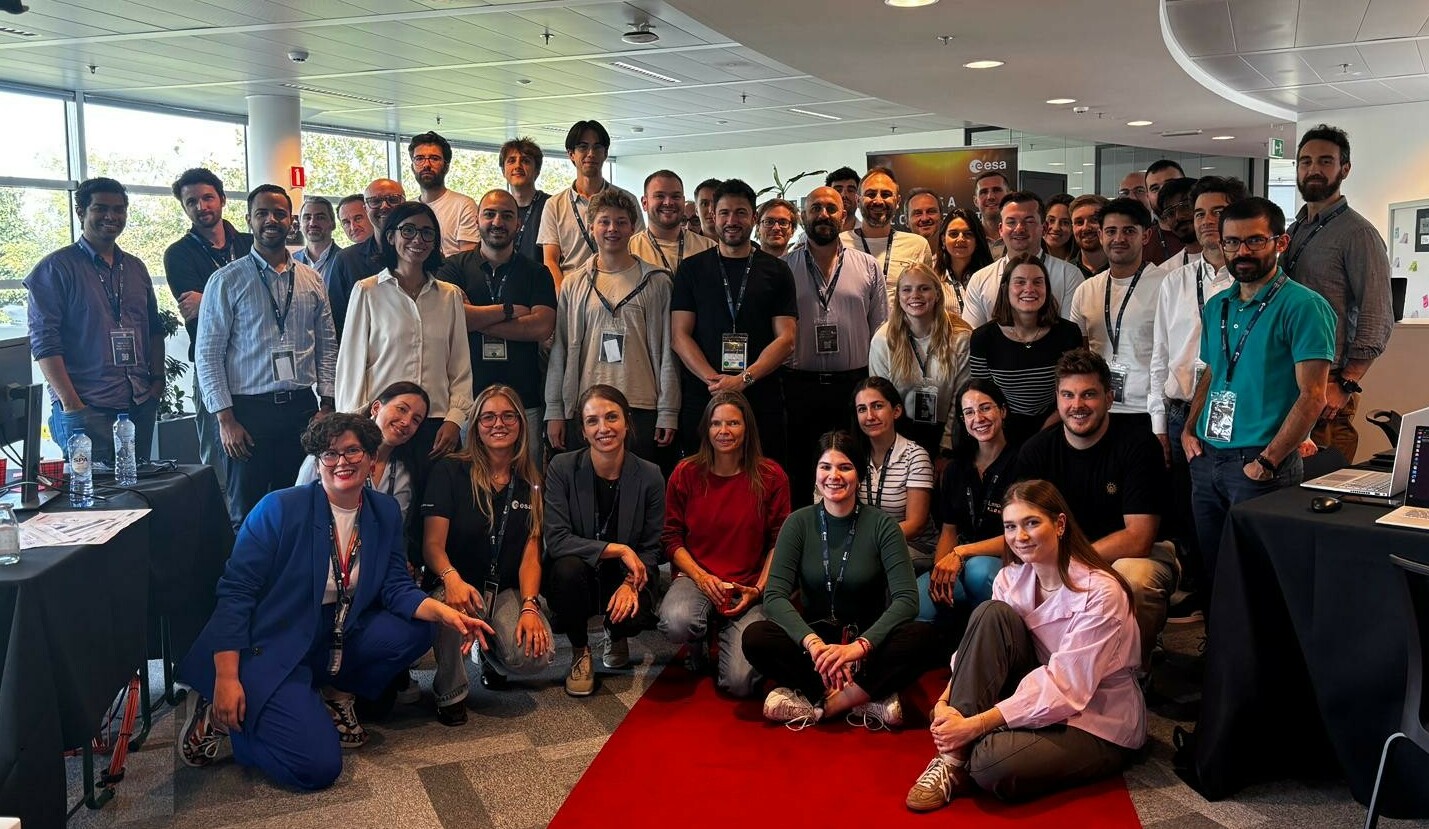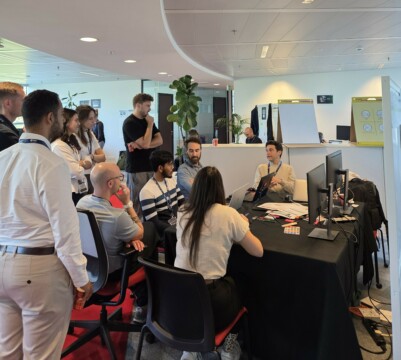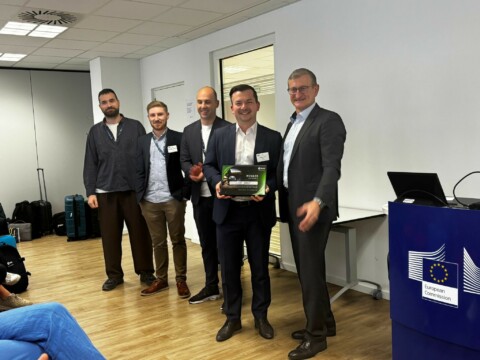Accelerating urban green transition: guided by users, driven by innovation

Genuine and impactful innovation must be developed with users and for users. This was the resounding message that emerged from a five-day innovation sprint during the ESA Acceleration Days in Brussels.
The ESA Acceleration Days: Accelerate Urban Green Transition was the second event in a new series of competitions which demonstrate the impact of rapid and open innovation to quickly co-create marketable solutions with end-users. The event was organised by the European Space Agency and Sopra Steria, in collaboration with the European Commission’s DG CLIMA and supported by a diverse group of stakeholders, including the Covenant of Mayors, the European Environment Agency, and representatives from the cities of Paris, Essen, Gävle, among others.
Today, cities and municipalities are under increasing pressure to become more sustainable and climate-resilient. However, many still find it challenging to harness space-based data and solutions to support this transformation. To address this, participants collaborated closely to co-create prototypes that provide urban stakeholders with innovative tools, turning complex data into practical insights for advancing sustainable urban development.
Seven teams from across Europe came together to create a tool leveraging AI to guide and support urban planners. The participants were:
- FEV.io
- BuildWind
- LETO SPACE
- LUP – Luftbild Umwelt Planung
- Latitudo 40
- AskEarth
- ReImagine Space

Step by step, the teams were guided by mentors and facilitators, building a compelling story and methodology to develop a clear, comprehensive, and robust business idea and product. They were encouraged to adopt the user’s perspective, focusing on how the tool could best serve its end users. This step proved essential—not only for refining the tool’s features (such as which data to include), but also for understanding how the tool would be used and interpreted. Would it be available in multiple languages? Would it offer a simple, intuitive interface? Most importantly, would it effectively guide users toward making sound, well-informed choices for urban development in line with EU regulations and targets?
The Sprint concluded with final pitches hosted at the European Commission – DG CLIMA premises, where teams walked the jury through the journey behind their prototypes, highlighting the problem addressed and a commercialisation plan for further development.
 The winning project was the Spacegraph AI Compass, developed by the LETO SPACE team, a tool which offers a user-friendly, multilingual platform that acts as a neutral broker between solution providers and city officials. The LETO SPACE team has now been invited to apply for an ESA Cooperative Agreement, valued at up to €100,000, to further develop this winning tool and explore its scalability and bring it even closer to real-world implementation.
The winning project was the Spacegraph AI Compass, developed by the LETO SPACE team, a tool which offers a user-friendly, multilingual platform that acts as a neutral broker between solution providers and city officials. The LETO SPACE team has now been invited to apply for an ESA Cooperative Agreement, valued at up to €100,000, to further develop this winning tool and explore its scalability and bring it even closer to real-world implementation.
Taking part in such a dynamic event, surrounded by inspiring people and ideas, was truly an enriching experience. It enabled Eurisy to genuinely serve as a bridge between space solutions and society, witnessing firsthand how these connections can be made in practice and experiencing the fresh perspectives and collaborations that are so vital in the sector today.
